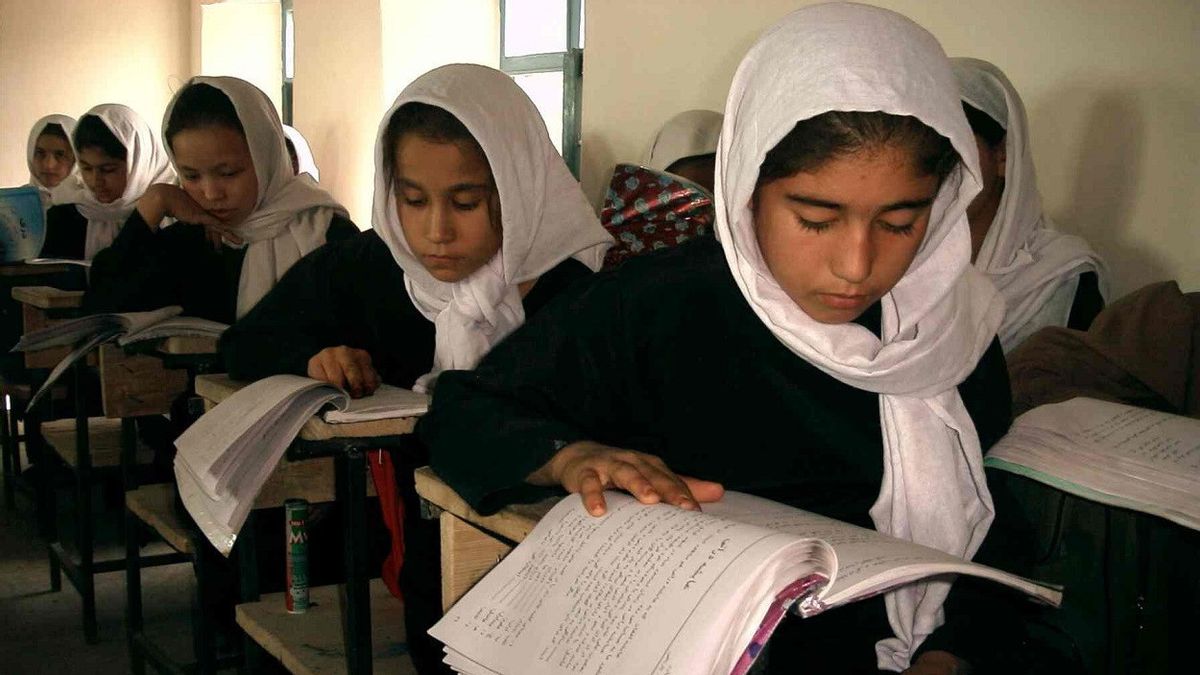JAKARTA - Girls remain barred from secondary education for the third year in a row, as Afghanistan's Ministry of Education announced the start of the new school year on Wednesday.
Male students returned to class at the start of Afghanistan's new year, but women and girls are not in school due to a wave of restrictions that the United Nations calls apartheid gender.
Women and girls have been barred from education after Class 6 since the takeover of the Taliban in 2021.
The Taliban have severely restricted women's access to education and employment, effectively removing half of their population from society.
"It's hard to get motivation when things are closed to you and there's no future perspective," said Begum Academy director Hamida Amanshe, as reported by The National News from AFP March 21.
Begum Academy provides online classes to allow women and girls who are prohibited from getting education.
"These girls can't have diplomas, or they don't have the ambition to go to university or get a job in the future," she continued.
Not only formal education, home-based school programs organized by international organizations are often closed by the authorities.
As with secondary education, women are also prohibited from attending higher education levels since December 2022, when state universities also open new school years.
This situation makes UNESCO place Afghanistan as one of the worst places in the world for women, with one of the lowest literacy rates.
Education for girls and girls is the main goal of the US-backed Afghan government previously. However, its achievements are mostly limited in cities alone, with only 23 percent of girls aged 13 to 18 studying across the country, according to the International Crisis Group think tank.
This figure fell to 13 percent after the Taliban government announced a ban on education. The UN Children's Agency said more than one million girls were affected by the ban.
Since the takeover, Taliban authorities have said they are trying to build a system that is in line with their interpretation of Islamic law.
Online alternatives have emerged, but with weak internet connections, repeated power outages, and computer scarcity, virtual classes are poor substitutes for face-to-face learning, students and teachers say.
Afghan girls and young girls are also enrolling in madrasas in an effort to continue their education.
But experts say these religious schools, although important, cannot compensate for the loss of access to secondary education.
A UNESCO report last year said Afghanistan's 2.5 million young girls and girls did not follow the education system, 80 percent of the age group.
SEE ALSO:
However, these alternatives cannot provide certified diplomas or qualifications recognized worldwide.
"We have a new generation of highly educated women and they will not stop learning. They are trying to find new ways, but it's difficult because they can't get formal education," Manizha Bakhtari, Afghanistan's former chief staff of foreign affairs, told The National News in June.
Taliban authorities have applied a rigorous interpretation of Islamic law since they seized power.
The English, Chinese, Japanese, Arabic, and French versions are automatically generated by the AI. So there may still be inaccuracies in translating, please always see Indonesian as our main language. (system supported by DigitalSiber.id)
















